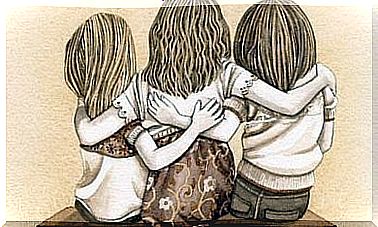What Do You Lose By Living Competing

With subtle but forceful messages, from childhood they sometimes impose a mandate on you: prevail over others. Let the father or mother who has not succumbed to the temptation to say to one of their children: Look how your little brother does or does not do this or that. Comparison, always obnoxious, is frequently used as a resource.
At school, not to mention it. The very system of “ratings” is a constant source of parallels between people. There are usually winners and losers in the scheme. Early on they instill in you that a kind of “law of the jungle” prevails in which “the strong” are the ones who have all the winnings and the work environment ends up prolonging the idea.
Culture and the economic system call you much more to competition than to solidarity. The postulate is so strong that you end up identifying the meaning of life with success. If you occupy a “prominent” place, your life has meaning; if not, your life “lacks” reason. And, of course, “success” means, first, to be “well qualified”; and second, for the same reason, to be above others.

In addition to considerable effort, achieving that kind of success comes with some pretty high costs. The first, and the highest, is to renounce that kind of intimacy that fraternal ties generate. The others stop being a whole world with which you can come into contact and they become a point of reference within a scale.
Even if you don’t scream or make a scene, the competition puts you in a state of war. Your life position is basically aggressive: win to prevail. This represents a significant investment of intellectual and emotional resources. You have to stay alert to prevent whoever is behind you from taking you out of the game. And you should also keep an eye out for any opportunity to get out of the one ahead.
That is why stress and addictions are the hidden face behind the facade of great individual successes. The constant state of alertness and the amount of energy deployed to win are such that they end up surpassing anyone. You enter, without realizing it, into a state of constant tension that sooner or later also takes a toll on your physical health.
But there are also other sequels. Power, fame and money, the three great emblems of success, are part of these voracious and insatiable realities. That means it is never enough for you. Its dynamics are enveloping and that is why there will always be a little voice that shouts from the background: more, much more.

When you least realize it, you will have become a suspicious and distrustful person. Perhaps “skilled” to move in the field of competition, but completely illiterate in the field of affection. Perhaps successful in some area of life, but failed in others. Someone will ask you “Are you happy?” And you will say yes (the warrior never says no). But another thing will tell your difficulty to rest, laugh, play.
Jean Piaget says that intelligence, from the moral point of view, is expressed as a willingness to cooperate. Competition as a standard of life implies a kind of myopia. It operates in the here and now, but in the long term and seen from a context of society and history, it brings multiple evils with it. It is a sad attribute.
L large as wars always start with these contentions of the day to day where the other is seen as a virtual enemy. That is why it is never necessary to remember the words of the poet John Donne, who gave flight and direction to one of Hemingway’s great works:
“Nobody is an island, complete in himself; each man is a piece of continent, a part of the earth; If the sea takes away a piece of land, all of Europe is diminished, as if it were a promontory, or the house of one of your friends, or your own. The death of any man diminishes me because I am linked to humanity; therefore never ask for whom the bell tolls: it tolls for you. “









